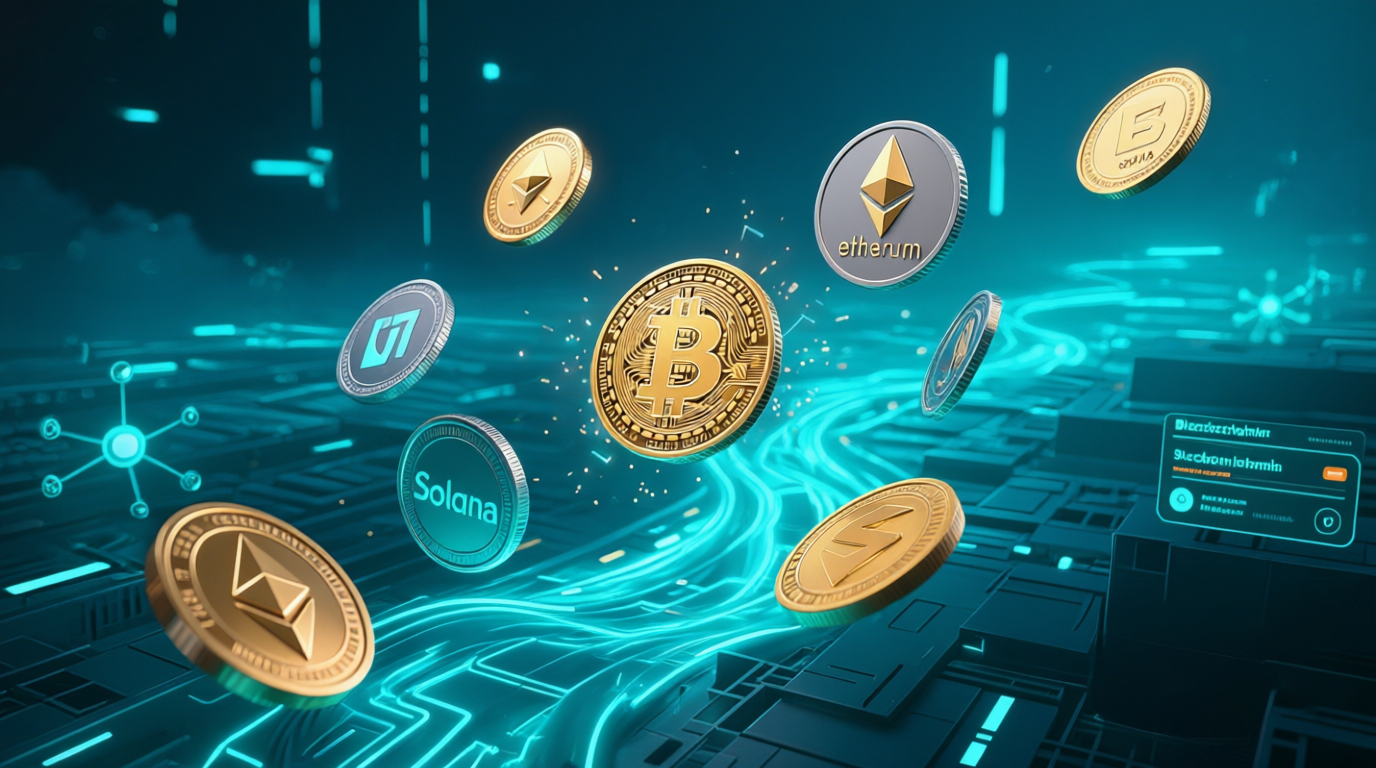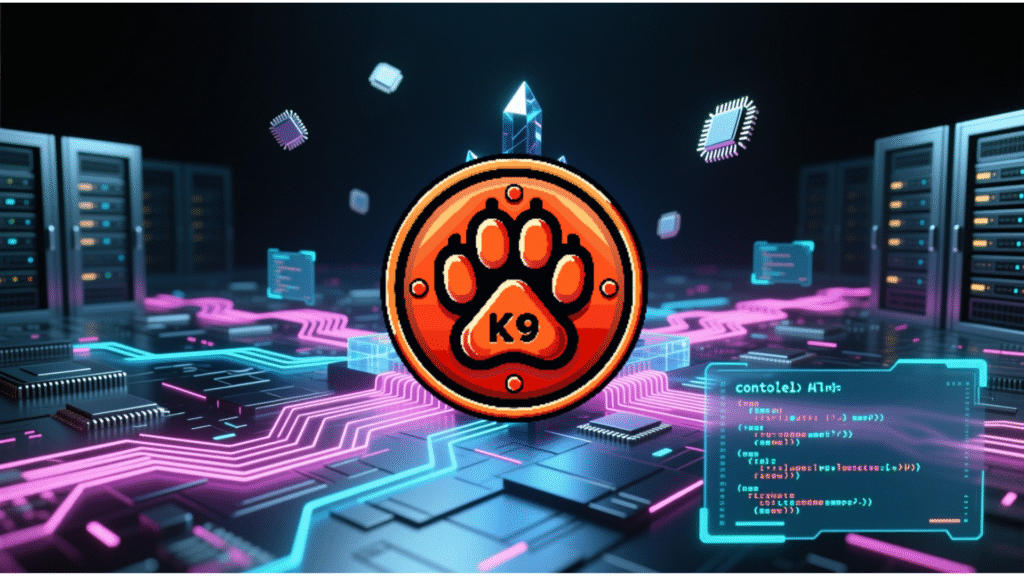If you’ve ever dipped your toes into crypto, you’ve probably heard people toss around tokens and coins like they’re interchangeable. Spoiler alert, they’re not. While both are digital assets, the difference between them can shape how you trade, invest, and interact in Web3.
Key points:
- Coins run on their own blockchain and act as digital money while tokens are built on existing blockchains and serve specialized functions like governance, access, or collectibles.
- сoins power transactions and staking whereas tokens enable DeFi participation, NFT ownership, DAO voting, and other ecosystem-specific activities.
- Understanding tokens and coins helps investors make smarter choices, avoid transfer errors, and confidently navigate trading, staking, and decentralized platforms.
Understanding where each fits in helps you make smarter decisions, whether уou’re buying your first Bitcoin, diving into decentralized finance (DeFi), or exploring non-fungible tokens (NFTs). By the end of this guide, you’ll be able to tell your tokens from your coins like a pro and know exactly when to use each.
What Is a Coin?
A coin is the OG of the crypto world, it runs on its own blockchain and acts as true digital money. Think of it like the currency native to a country, except the “country” here is a blockchain. Coins are mainly used for payments, transactions, and storing value. Bitcoin, Ethereum, and Litecoin are classic examples of coins you’ve probably heard of. They’re what you use to buy goods and services, stake on their respective networks, or send value directly from one wallet to another. In short, coins keep the crypto economy moving, powering the blockchains they live on.
What Is a Token?
If coins are the OGs of crypto, tokens are their creative cousins, built on top of existing blockchains like Ethereum. While cоins run their own show, tokens live and thrive inside another ecosystem.
In simple terms, a token is a digital asset that can represent anything, from voting rights in a Decentralized Autonomous Organization (DAO) to your favorite NFT collectible. They’re like the in-game currency or VIP passes of Web3, giving you access, ownership, or influence in different decentralized worlds.
Related: Industry Celebrates the New $70M Domain Mogul But His Crypto Shadows Linger
You’ll find famous names like Shiba Inu (SHIB), Uniswap (UNI), and Chainlink (LINK) among the most popular tokens and coins out there. Each one has a specific purpose: some fuel DeFi services, others act as governance tools, and a few even become digital art forms.
In real-world use, tokens are how you vote in community-run projects, stake for rewards, or prove that your pixelated ape actually belongs to you. Together, tokеns and coins mаke up the backbone of blockchain life, one powers the netwоrk, the other unlocks what’s possible within it.
Key Differences Between Tokens and Coins
Understanding tokens and coins gets easier when you break it down into a few core differences:
- Ownership: Coins have their own blockchains, like Bitcoin or Ethereum. Tokens, on the other hand, live on top of another blockchain, such as ERC-20 tokens on Ethereum.
- Function: Coins mostly serve as digital money, a way to pay or store value. Tokens often have speсialized roles, like giving access to services, voting rights in DAOs, or even representing collectibles.
- Creation: Launching a coin means creating an entire blockchain from scratch. Tokens are simpler to make using smart contracts on an existing blockchain.
- Transfer: Coins move directly across their native network. Tokens rely on the host blockchain’s infrastructure to travel between wallets and applications.
Knowing these distinctions helps you see why coins and tokens aren’t interchangeable, each has a unique role in the crypto ecosystem.
Why the Distinction Matters
Knowing the difference between tokens and coins isn’t just crypto trivia, it actually makes a big impact on how you use and invest in digital assets.
Related: сrypto Titans Bunker Down Now: Vitalik’s Austerity Vow, Binance $1B Bitcoin Shield
- Investment Choices: Understanding tokens and coins helps you pick the right assets for your goals and weigh thе risks properly. Coins might be more stable as digital money, while tokens can offer utility or governance opportunities.
- DeFi and Staking: Some coins can be staked directly on their native networks, but tokens usually interact with decentralized apps. Knowing which is which ensures you don’t miss out on rewards.
- Safe Transfers: Mixing up coins and tokens can lead to lost funds if sent to the wrong blockchain. Recognizing the difference keeps your assets secure and your transactions smooth.
Getting this distinction down makes navigating crypto much less confusing and a lot more rewarding.
Practical Uses in the Crypto Ecosystem
Tokens and coins each play their own role in the crypto world, making the ecosystem more dynamic and interactive.
- DeFi: Tokens power staking, lending, and yield farming, letting users earn rewards while supporting decentralized networks.
- NFTs: Tokens act as proof of ownership for unique digital art, collectibles, or in-game assets.
- DAOs: Governance tokens give holders a real voice, letting communities vote on proposals and shape projects.
- Trading: Coins usually serve as the base currency for swaps, while tokens expand the ecosystem with specialized functions and opportunities.
Understanding these practical uses helps beginners see how tokens and coins move beyond just being digital money.
Speak the Language of Crypto
Getting tokens and coins straight might seem small, but it’s one of the most powerful moves you can make in crypto. Knowing the difference helps you navigate Web3 with confidence, avoid mistakes, and make smarter choices when trading, staking, or exploring DeFi and NFTs.
The more you understand, the more empowеred you bеcome. With this knowledge, you’re not just holding digital assets, you’re participating safely and confidently in the digital economy.












